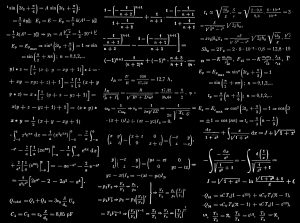Math For Kids: Learn And Enjoy The World Of Numbers

Do you remember when you were a child and first encountered numbers? It might have been a bit overwhelming at first, but as you explored the world around you, those numbers started to make more sense. Math is a fundamental skill that children begin to learn from a young age. It builds the foundation for critical thinking, problem-solving, and analytical skills that are essential for success in various professions later in life.
However, for many children, math can be intimidating and challenging. It’s important to find ways to make learning math enjoyable and engaging. As parents, it is our responsibility to make learning math enjoyable and help our children form a positive relationship with numbers. In this blog, we will explore the world of numbers and share tips and tricks to help your child fall in love with math.
Importance of Making Math Fun
Mathematics is a subject that children encounter in their everyday lives. From counting objects to solving complex equations, math skills are essential for cognitive development. However, many children develop a negative attitude towards math due to its perceived complexity. It is crucial to make math fun and engaging to foster a love for numbers in children.
By using interactive games, hands-on activities, and real-world examples, we can help children overcome their fear of math and develop a positive attitude towards the subject.
Exciting Math Activities for Kids
Engaging children in hands-on math activities can make the learning process enjoyable and memorable. Here are some exciting math activities you can try with your child:
-
Shape Hunt: Take your child on a scavenger hunt to find different shapes in the environment. Encourage them to identify and name each shape they find.
-
Measurements: Get creative with measuring by using everyday objects. Let your child measure the length of their toys using paper clips or compare the weights of different objects using a scale.
-
Pattern Fun: Explore patterns with your child by creating simple ABAB or ABCABC patterns using objects or coloured blocks. Encourage them to continue the pattern.
-
Cooking Calculations: Involve your child in cooking activities and let them measure ingredients, count the number of spoons used, or divide portions.
-
Math Story Time: Read math-related books or stories to your child. Discuss the math concepts within the story and ask questions that encourage critical thinking.
Everyday Math: Incorporating Numbers into Daily Activities
Math is not limited to the classroom; it is a part of our everyday lives. By incorporating math into daily activities, you can help your child see the practical applications of mathematics. From measuring ingredients while cooking to counting objects while grocery shopping, there are endless opportunities to engage your child in real-world math. We will discuss creative ways to make math a part of your daily routine and help your child develop a deeper understanding of numbers.
Fun Math Games for Kids
One of the best ways to make math enjoyable for kids is through games. Math games not only engage children but also provide an interactive and hands-on learning experience. Here are some fun math games you can play with your child:
-
Guess the Number: This classic game helps children learn about numbers and estimation. One person thinks of a number between 1 and 10, while others ask yes or no questions to guess the number.
-
Counting Objects: Use manipulatives like toys or cereal to help your child count objects. Encourage them to line up the objects and see the total count.
-
Number Line Hop: Create a number line and have your child hop along it as they count. You can use small toys or buttons as markers on the number line.
-
Math Store: Set up a pretend store with items and play money. Your child can practice counting and simple addition by purchasing items and giving the correct amount of money.
-
Number Scavenger Hunt: Hide numbers around the house or room and have your child find them. They can then count the numbers they found and put them in order.
Engaging Math Worksheets for Kids
Worksheets are another fantastic tool to make math fun and engaging for kids. They provide structured exercises that reinforce math concepts while keeping children entertained. Here are some ideas for math worksheets that you can use:
-
Colour by Numbers: Create worksheets where children can colour different parts of a picture based on the numbers given.
-
Math Puzzles: Design puzzles that require solving math problems to unveil a hidden picture or message.
-
Missing Numbers: Write a series of numbers but leave some gaps for children to fill in the missing numbers.
-
Word Problems: Craft word problems that relate to real-life situations, encouraging children to apply their math skills to solve them.
-
Math Bingo: Create bingo cards with numbers or math problems. Children can solve the problems and mark the corresponding number on their cards.
Benefits of Abacus Learning
Abacus learning is a proven method to improve mathematical skills in children. The abacus helps children develop mental math abilities and enhances their focus, concentration, and attention span. By visualising numbers on the abacus, children can perform complex calculations quickly in their heads. Abacus learning also enhances overall intelligence, learning ability, and academic performance. Studies have shown that children who complete the abacus program perform significantly better in math and reading at school. By enrolling your child in an abacus program like SIP Abacus India, you can provide them with a competitive edge and nurture their academic growth.
Summing Up
In conclusion, making math enjoyable for kids is essential to developing their mathematical skills and fostering a positive attitude towards numbers. By incorporating interactive games, hands-on activities, and real-world examples, we can help children overcome their fear of math and develop a love for the subject. Additionally, enrolling your child in an abacus program like SIP Abacus India can further enhance their mathematical abilities and overall cognitive development. So, let’s take the first step in unlocking the power of numbers and helping our children learn and enjoy the world of mathematics.



